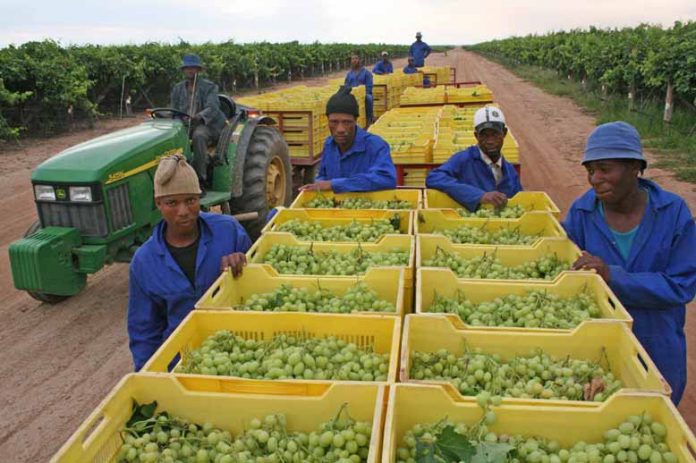President Barack Obama formally notified the U.S. Congress today that he will suspend duty-free treatment on South Africa’s agricultural exports to the United States beginning 60 days from the date of the notification.
Along with vehicles, agricultural exports from South Africa, particularly citrus exports, have benefited the most from duty-free access to U.S. markets under the African Growth and Opportunity Act, the cornerstone of U.S. commercial engagement with Africa.
South Africa exports some $250 million worth of citrus products to the United States each year. Other agricultural exports to the U.S. include green coffee, cane and beet sugar, dairy products and eggs, vegetables, nuts, tea, spices, food grains, wine and beer. Suspension of the duty-free benefit could cost hundreds of millions of dollars a year in South African exports and related jobs.
“I am taking this step because South Africa continues to impose several longstanding barriers to U.S. trade, including barriers affecting certain U.S. agricultural exports, and thus I have determined that South Africa is not making continual progress toward the elimination of barriers to United States trade and investment as required by section 104 of AGOA,” the president said in a letter dated November 5, 2015, addressed to the Speaker of the U.S. House of Representatives and the President of the U.S. Senate.
South Africa may have been caught by surprise by President Obama’s action today.
“We believe the negotiating process is on track, and we should expect U.S. imports of poultry, beef and pork by the end of the year,” South African Trade Minister Rob Davies was quoted as saying in an online article published today at 5:43 a.m. local time by the South African news organization, Independent Media.
In the same article, Independent Media quoted South Africa’s AGOA Special Envoy, Faizel Ismail, as saying that he was in daily contact with officials in the office of the U.S. Trade Representative, and that he had no evidence to suggest that the U.S. was considering reducing South Africa’s benefits under AGOA.
At issue are restrictions South Africa imposed on imports of U.S. chicken, beef and pork in order to protect its own farmers. U.S. poultry, priced cheaper in the South African market than local poultry, prompted South African chicken farmers to accuse their U.S. counterparts of “dumping” chicken meat in South Africa. South African authorities responded with punitive tariffs that essentially locked U.S. meat out of the market.
The tariffs have been in effect for 15 years and U.S. chicken farmers want them removed. The two countries reached agreement last June, whereby South Africa established a large quota for U.S. chicken imports that would be spared the tariffs. However, South Africa kept the restrictions in place following an outbreak of avian flu in the United States.
Tariffs on U.S. beef have been in place for 12 years, while those on pork have been in effect for the past three years. Health-related discussions in September between veterinary experts from the two countries proved fruitless. At the time South Africa said it had done all it could to satisfy AGOA requirements, but the U.S. insisted that much more needed to be done.
Washington is also rattled by South Africa’s proposed amendment to its Private Security Industry Regulation Act of 2001 that would cap foreign ownership of private-security companies at 49 percent from its current 51 percent. U.S. security firms with investments in South Africa, such as ADT Corp. of Boca Raton, Fla., worry that the legislation will force them to sell off their South Africa units.
U.S. officials say South Africa has missed the last three deadlines to resume imports of U.S. poultry, beef and pork. President Obama’s decision to target South Africa’s agricultural exports alone rather than suspend all of that country’s AGOA benefits appears to give Pretoria more time to appease Washington.
“I have determined that such suspension of benefits would be more effective in promoting compliance by South Africa with the eligibility requirements listed in section 104 of AGOA than the termination of South Africa’s designation as a beneficiary sub-Saharan African country, as it would better promote continuing efforts between the United States and South Africa to resolve these outstanding issues. Although South Africa has to date failed to meet critical benchmarks required to address these issues, it continues to express an interest in resolving U.S. concerns,” the president said in his letter to Congress.
“I will continue to assess whether South Africa is making continual progress toward the elimination of barriers to United States trade and investment in accordance with AGOA eligibility requirements, as well as whether this suspension of benefits is effective in promoting compliance with those requirements,” the letter said.













